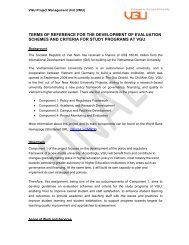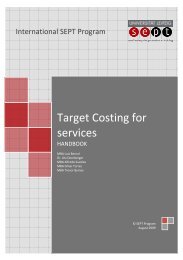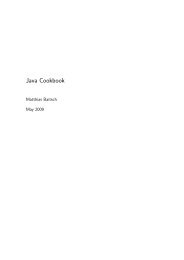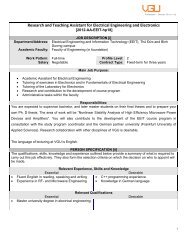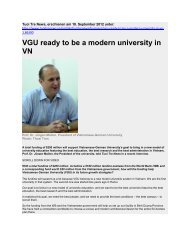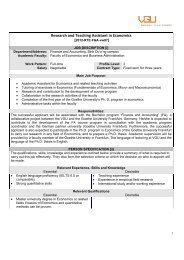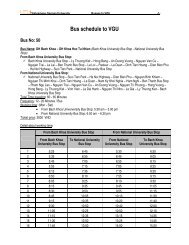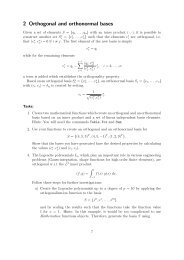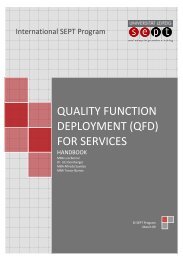VGU Urban Development Planning Overview over Modules and ...
VGU Urban Development Planning Overview over Modules and ...
VGU Urban Development Planning Overview over Modules and ...
Create successful ePaper yourself
Turn your PDF publications into a flip-book with our unique Google optimized e-Paper software.
Technical University Darmstadt www.urban-studies.de<br />
International<br />
Co-operation<br />
<strong>and</strong> <strong>Urban</strong><br />
<strong>Development</strong><br />
Course description<br />
Year One<br />
1 Course identification<br />
2.1.2.B<br />
2 Module 2.3.<br />
Physical planning,<br />
urban design & ecology<br />
3 Name of course <strong>Urban</strong> planning for mega events & city marketing<br />
4 Course instructor Dr. Rod Burgess. sen Lecturer, Oxford Brookes<br />
Dr. Claire Colomb (Bartlett School of <strong>Planning</strong>,<br />
University College London)<br />
5 Contents /syllabus This course is intended to provide a critical introduction to<br />
urban marketing <strong>and</strong> planning for big events, leisure,<br />
recreation, <strong>and</strong> urban tourism in current <strong>and</strong> future society.<br />
Huge public-private investments in mega-events (Olympic<br />
Games), flagship projects <strong>and</strong> high-profile cultural<br />
amenities (museums) have been a key feature of<br />
contemporary urban policies in many big cities, with<br />
positive <strong>and</strong> negative impacts. Similarly, investments in<br />
tourist infrastructure are common in smaller towns <strong>and</strong> rural<br />
destinations – equally with uncertain <strong>and</strong> sometimes<br />
socially undesirable results.<br />
The emergence of urban marketing policies has been a<br />
consequence of the structural economic changes which<br />
have affected Western economies <strong>and</strong> cities since the<br />
1970s: de-industrialisation; growth of the service sector;<br />
globalisation of production, technology, capital, <strong>and</strong> cultural<br />
flows. These trends are perceived as the main causes of a<br />
new process of intense inter-city competition, which puts<br />
increasing pressures on individual city g<strong>over</strong>nments. As a<br />
response, city g<strong>over</strong>nments have increasingly turned their<br />
effort towards proactive strategies of local economic<br />
development aiming at capturing regional, national or global<br />
flows. In the American context, these local proactive<br />
policies have been labelled as the new 'urban<br />
entrepreneurialism' (Harvey, 1989), a term since widely<br />
applied to other contexts.<br />
The cities' g<strong>over</strong>ning elites are turning to new sources of<br />
wealth for their cities after the industrial age, implementing<br />
2.3.5 Page 1



